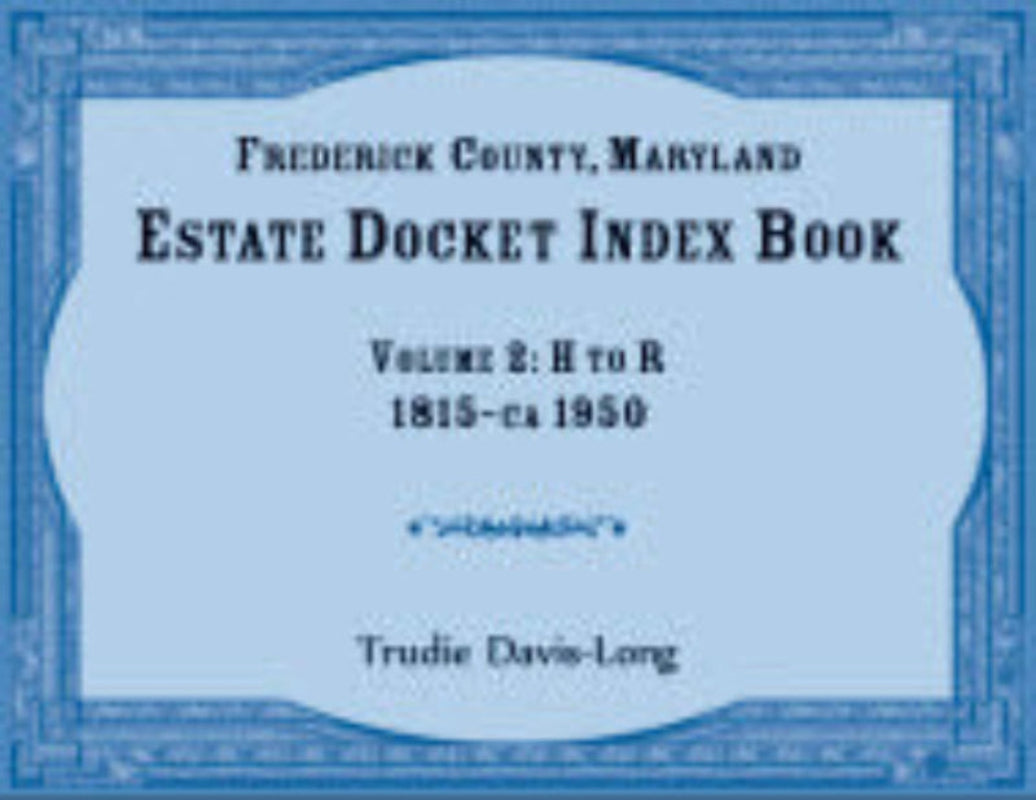Frederick County, Maryland Estate Docket Index Book, Volume 2: H to R, 1815-ca 1950
Couldn't load pickup availability
By an act of February 1777, the General Assembly established the Orphans' Court. This court was empowered to take all probate of wills, grant letters of administration and letters testamentary, as well as warrants to appraisers in cases where there was no dispute, and in every respect had the same power, jurisdiction, and authority in connection with the register of wills that the deputy commissary had before that time in connection with the county court. The Orphans' Court was authorized to bind out children as apprentices under the following circumstances: when profits of the orphan's estate were not sufficient for their maintenance, if they were the children of beggars or illegitimate children, and when sufficient support was not afforded to children of out-of-state parents.
From 1817, the Register of Wills was empowered to receive inventories and accounts of sales, and to state guardians', executors' and administrators' accounts subject to review by the court. He was authorized to take probate of wills in 1832. From 1806 until the Civil War, the Register was authorized to grant certificates of freedom to Negroes and was required to keep a record of those he issued.
This wealth of information is presented in a table format. Entries are arranged alphabetically by the first letter of the decedent's surname. Column headings contain the following: Decedent; Administrator or executor; Bonds: date and reference; Bondsmen; Inventory or sale of personal property, date and reference; Inventory of current money and debts due, date and reference; Inventory of stocks, bonds, real estate, date and reference; Sale of real estate, date and reference; First account, final account, dates and references; and Remarks (often "2nd and fl" - meaning second and final). The full-name and place index refers to the original page numbers in the docket book.
Trudie Davis-Long
2022, 8.5" x 11", paper, index, 776 pp.
ISBN: 9780788425769
101-D2576
